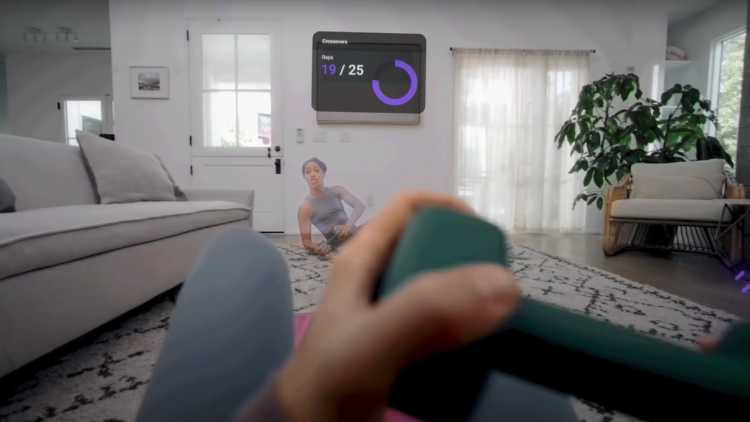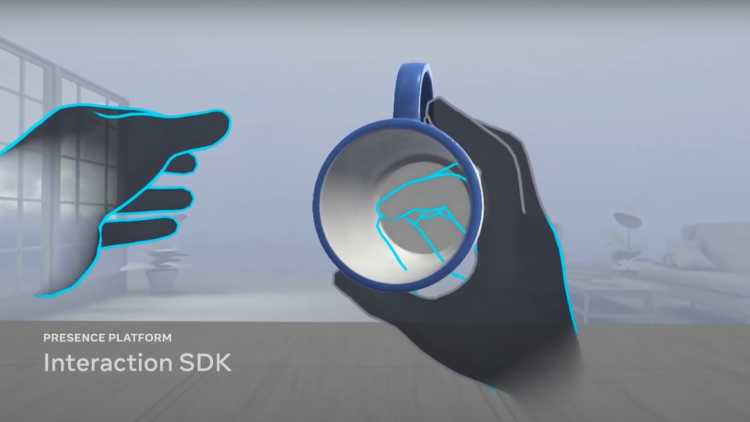Whether or not you’re familiar with the intricacies of Augmented, Virtual, and Mixed Reality, you’ve likely heard about the social media giant, Facebook, reimagining itself as Meta Platforms.
How to be Well Versed in the Metaverse
Meta partnered with popular internet personalities like Oneya D’Amelio to promote their new direction
The name harkens to the term “metaverse,” a word first coined by science fiction author Neal Stephenson in his 1992 book Snow Crash. In Stephenson’s novel, the metaverse is a shared space where virtual, augmented, and physical reality all meet. Users access the space via high-quality private terminals or low-quality public terminals. Within the space, a former cable television group owns all the real estate along a single, shared highway.
While there’s still a lot to learn about where Meta and other players like Microsoft and Apple plan to take the metaverse, Stephenson’s vision may not be far off.
What and Where is the Metaverse?
Meta CEO Mark Zuckerberg addresses his company's new direction in a keynote video
In his keynote speech, Meta CEO Mark Zuckerberg described it as a “virtual environment” where, much like in Stephenson’s novel, all forms of media converge. Imagine a 3D space that you can enter or interact with via an immersive headset, AR glasses, your smartphone or tablet, or even a smartwatch. The key to the metaverse is that, in theory, it extends beyond just one form of reality and allows users to seamlessly connect with each other no matter where they are or what device they’re using. Zuckerberg mentions bringing pieces of your real world into the metaverse and combining them with digital things in ways that would be impossible in the real physical world.
Meta CEO Mark Zuckerberg interacts with a personal avatar. Courtesy Meta.
What Will the Metaverse Unlock?
In Meta’s grand plan, the metaverse will be able to encompass pretty much any part of daily life: social interaction, work, fitness, and learning.
Imagine stepping into a virtual living room of your design, and inviting friends and family from all over town, the country, or the world to watch a movie, play a game, or just hang out. This space, which Meta is calling Horizon Home, could be something as simple as a copy of your physical room or something as outlandish as a space station above Mars.
Meta’s Horizon Home and Quest for Business offer new ways to work from home. Courtesy Meta.
How about sitting down at a desk in your home, putting on a headset or smart glasses and being transported to a virtual office environment. Feel limited by desk space or budgets or lack of monitors? All that goes away when your workspace becomes virtual hologram screens. Miss meeting up in one room with colleagues? It can be as easy as setting up your Horizon Home and all done from the comfort of your favorite sweatpants.
Or what if you could drop into a room full of your peers for a group Zumba session, HIIT class, or Beat Saber battle? A major piece of the metaverse, according to Zuckerberg, will be the ability to “teleport from one experience to the another.”
How Do You Access the Metaverse?
Meta already offers one of the most affordable VR headsets available in the Oculus Quest 2 (soon to be renamed Meta Quest). Zuckerberg also announced a new line of headsets called Project Cambria which will carry the latest hardware developments from the company at a higher price point. The idea being that both options access the metaverse, with developments coming to the budget level Quest some time after debuting on the Cambria.
Meta released a sneak peak of the first headset under Project Cambria
Cambria also promises a step up in the passthrough AR capabilities of Meta’s headsets. Allowing a full-color view of your surroundings with augmented overlays which is the precursor to the AR glasses that Meta also announced in their keynote. Project Nazare promises to offer a full AR experience similar to what is currently achievable in the virtual world via the Quest. However, that technology is still a ways away for Meta and most other hardware companies.
Cambria offers a new combination of pass-through AR. Courtesy Meta.
Additionally, Meta announced the rollout of a “Presence Platform” which will open up several tools for app developers to build out new software and applications for the metaverse. That includes a new hand-tracking SDK, debuted in the keynote video, which will allow developers to build out new ways to interact in VR without the constraints of controllers.
Meta’s new Interaction SDK unlocks more hand-tracking capabilities. Courtesy Meta.
However, even with two headsets and eventual glasses, there will always be other companies developing alongside Meta. And that’s a good thing. Competition and oversight protect consumers and drive innovation, but it also begs the question of interoperability.
But What About Others?
Which brings us to the issue of competing platforms. For the metaverse to truly represent the vision Zuckerberg’s team is offering, access will need to be open. Companies like Meta, Microsoft, Apple, and other tech giants will ultimately need to commit to a shared set of standards to allow equal access to one metaverse—or bridges between competing metaverses. In the physical world, two companies don’t have to share the same office building, but you can still walk out of one and into the other.
Zuckerberg mentioned opening the metaverse to developers and companies in his keynote and admitted that no single power can build the entire space. However, there are still dozens of questions around one company being the driving force behind such a massive undertaking.
Hope for the Future
It’s easy to understand feelings of reservation at this level of investment into a virtual world from any company. That concern is multiplied when said company is currently wrapped up in issues around privacy, data, and fostering extremism and violence. Let alone the fear that a rosy virtual world could lead to a future full of vegetable humans who are constantly plugged in—as is the case for some characters in Snow Crash and a number of other works of dystopian science fiction.
However, there’s reason to believe that excitement and attention will not only shine a light of transparency on Meta and other companies, but also drive an awareness of the caution required with advancement. CrossComm and other smaller developers in the AR and VR fields will hope to build on and in this new space. Don Shin, CrossComm’s CEO, believes that there’s a good chance that a balance of capitalism and watchdog action will ultimately result in a shared and open new frontier where the good use cases are more prominent and impactful than the bad.
“I am hoping that Facebook's backing around this idea of the virtual metaverse will fuel other big tech players to create competing standards and ultimately the ones that are not industry leaders will likely form alliances to counter the industry dominant player. And I'm hoping, perhaps it might be a little optimistic, but I'm hoping an open metaverse or a multi-vendor metaverse that's interoperable with each vendor component can emerge from that based upon open standards. Potentially this new metaverse could even be based on web standards, so that it just becomes part of the WWW spec. We talk about the World Wide Web. What better realization of the original vision of the World Wide Web is there than having an immersive, interconnected metaverse based on open standards?”
Don Shin
CEO, CrossComm







